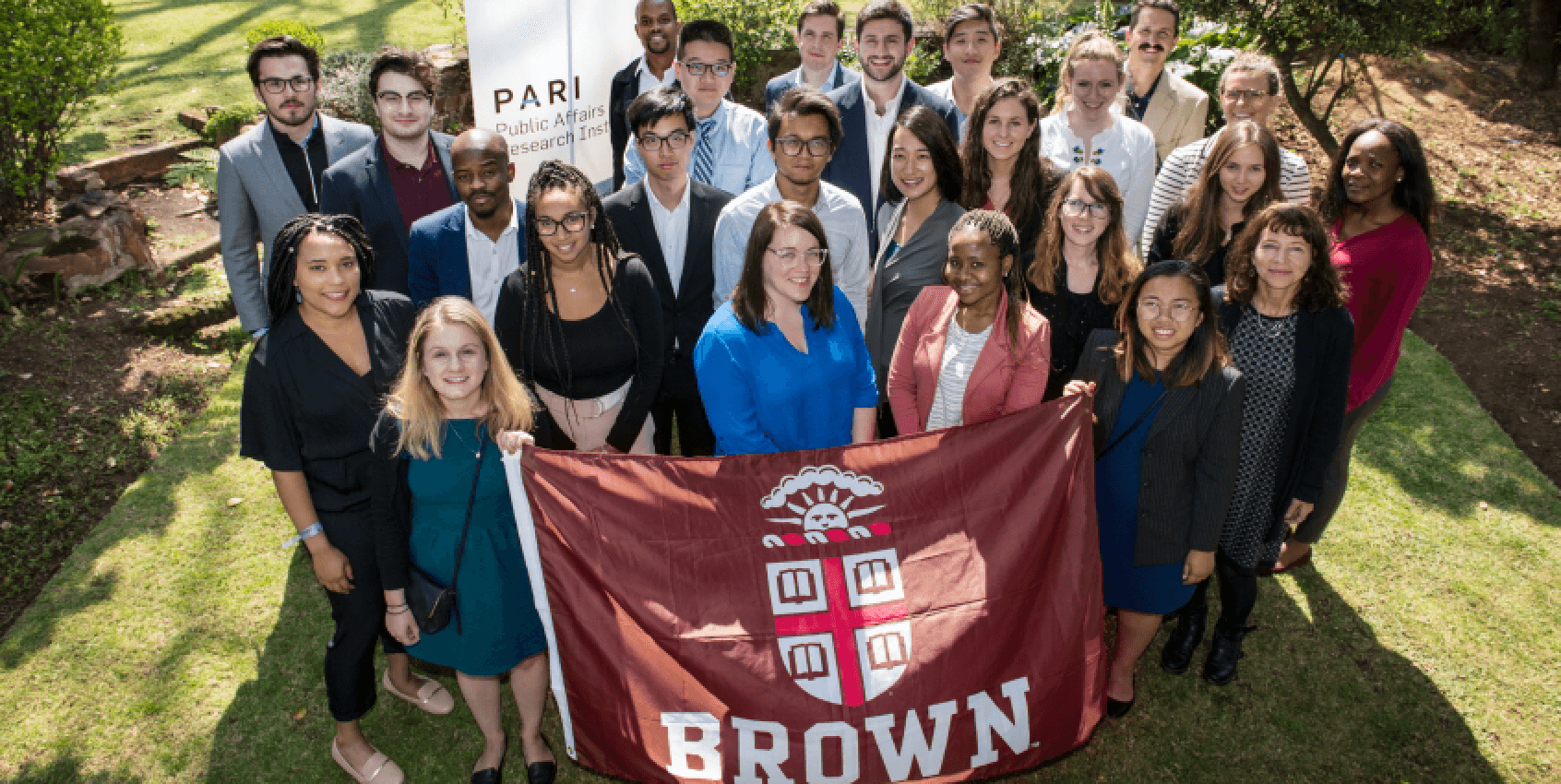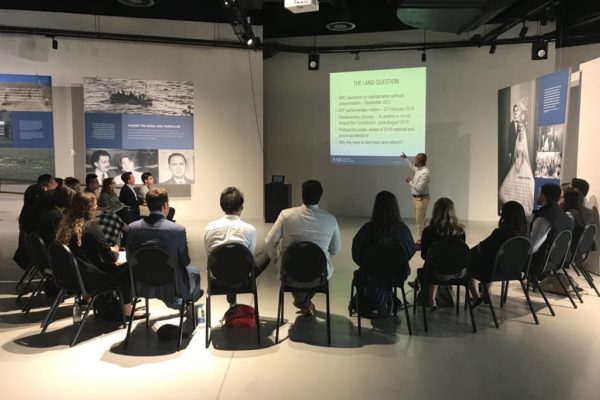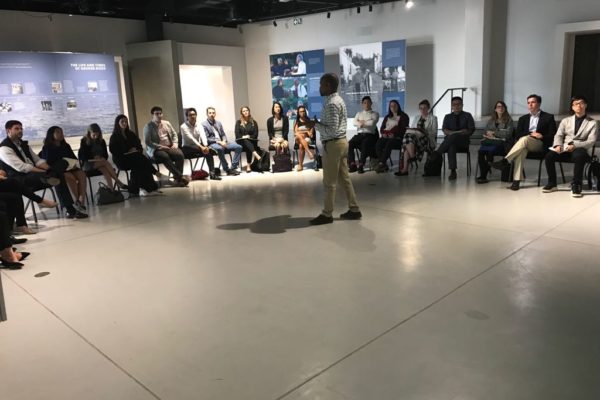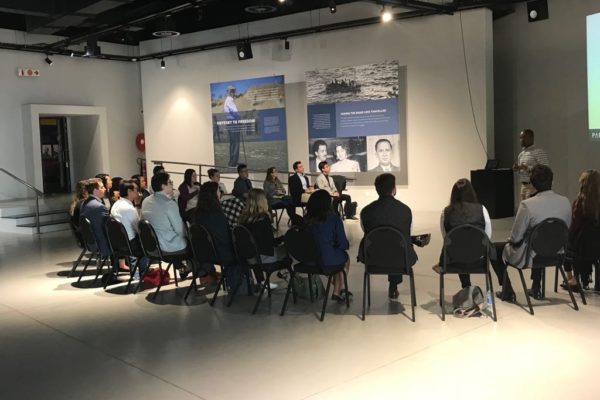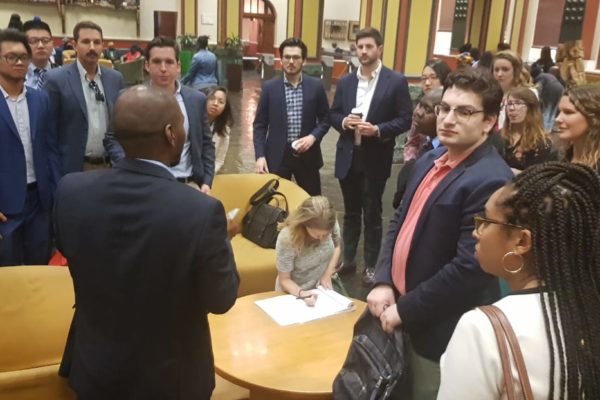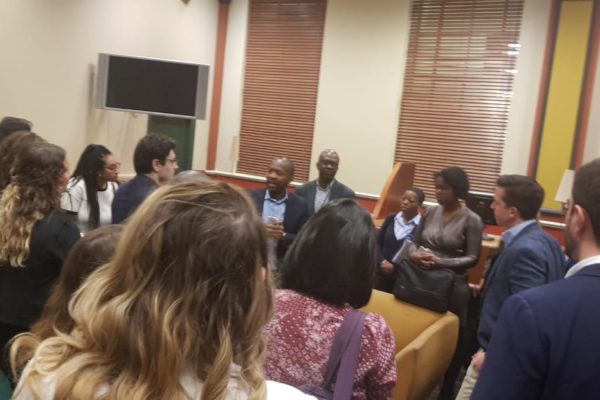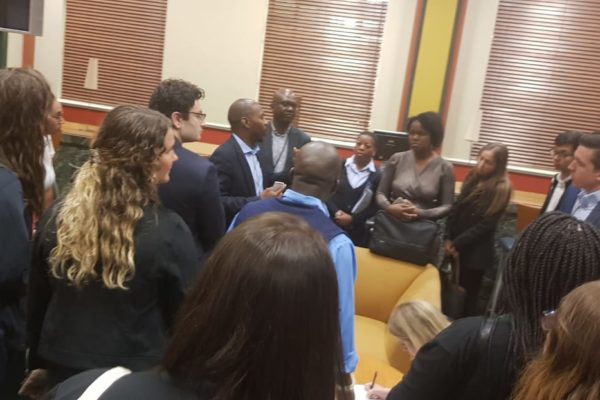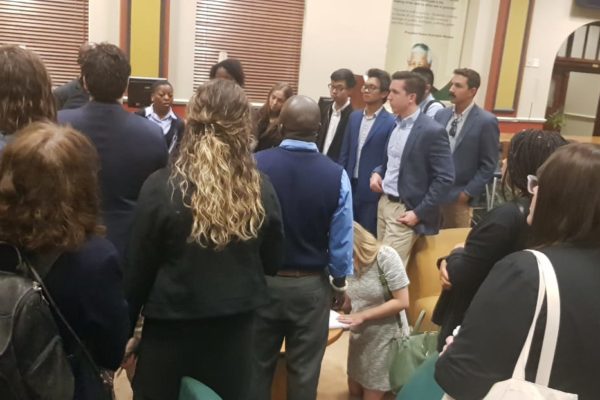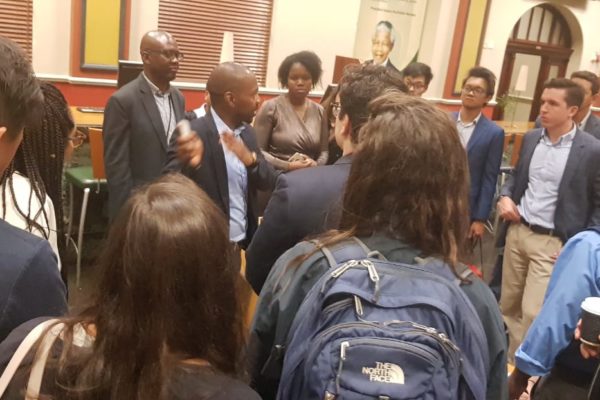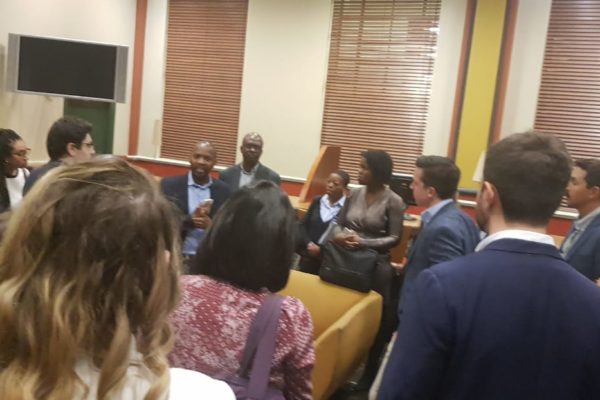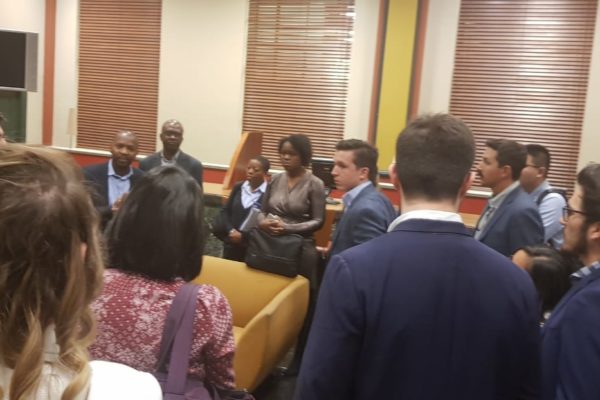This August 19th – 27th, PARI will host a group of Master in Public Affairs students from Brown University in Rhode Island, USA. The group can look forward to an exciting itinerary exploring Johannesburg’s historical and political spaces to better understand South African public policy.
PARI – BROWN UNIVERSITY PARTNERSHIP
MPA Programmme 2018
South Africa Public Policy in Perspective: Nationalism and Economic Transformation after Apartheid
During this Global Policy Experience students will explore the way that public policy issues in South Africa are deeply informed by debates about how to overcome South Africa’s apartheid past. In South Africa, unlike in America, segregation and apartheid were not understood primarily as civil-rights issues. Apartheid is conceived as a form of colonialism such that overcoming its legacy is understood as a project of decolonisation. This has important consequences for how public policy is debated in South Africa and the kinds of public policy ‘solutions’ that the country has pursued.
In particular, from around 2012, the ANC government under then President Jacob Zuma pursued a policy of ‘Radical Economic Transformation (RET)’ to change racial patterns of ownership and control of the economy. We will discuss the nationalist thinking behind RET and the methods that it used. In particular we will consider how the Zuma government came to believe that the South African Constitution was an impediment to RET, and how this administration came to tolerate a general atmosphere of lawlessness and corruption in state- owned enterprises.
The South African experience brings to the fore some critical issues in public policy. Who makes policy, how and in whose interests?
The programme will start with an introduction to South Africa’s history, focusing on the meaning and genesis of apartheid. What was apartheid? We will see how, after 1994, the ANC government understood public policy in terms of transforming the patterns of ownership and control of the economy. What was never adequately dealt with was the Bantustans legacy and what to do with traditional institutions and with chieftainship.
Through the 1990s and early 2000s, economic transformation, as the major public policy issue, was dealt with through affirmative action policies and a programme of black economic empowerment. At the historic 52nd National Conference of the ANC in 2007, these policies were deemed a failure. From then on, in the ANC and in government, there was a search for a more ‘radical’ model of change. Increasingly, we will see how public policy was positioned in opposition to the Constitution and the law, with dramatic consequences for the civil service, for the leadership of public institutions, for the economy and, ultimately, for South Africa’s democracy.
The Brown Delegation
Prof. Nina Tannenwald – Senior Lecture and Faculty Lead
John Kern – Student Trip Leader
Zhiqing Cao
Dane Cooper
Jessica Davison
Allison Duchesneau
Jacqueline Forney
Avetis Gevorkyan
Jill Harvey
Alex Johnson
Malysa Kettavong
Tom Liu
Paul Marshall
Lauren Smith
Sarah Mills
Nya Reichley
David Song
Hisyam Takiudin
Catherine Tonsberg
Wenzheng Wang
Emily Wolfsohn
April Yee
Rachel Lowenstein

